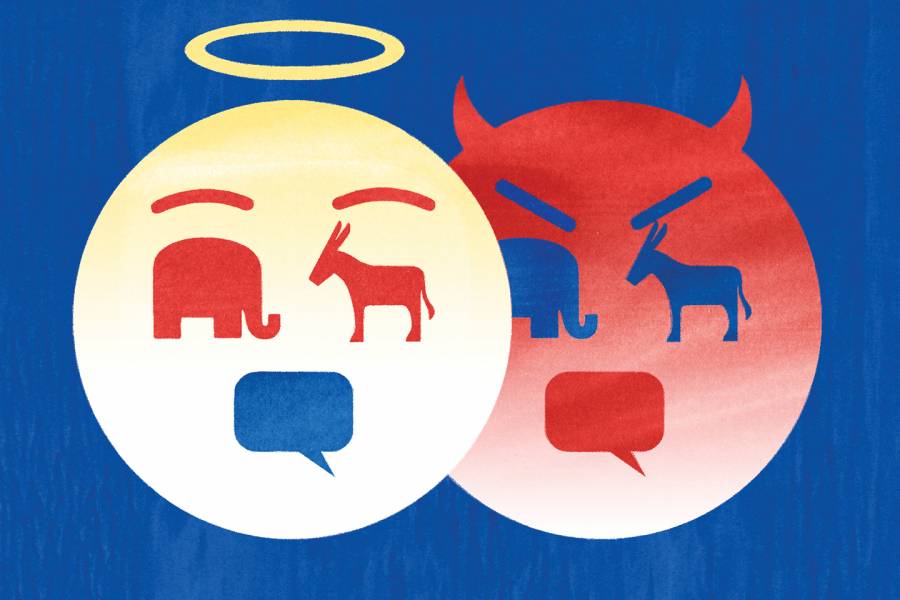Bots, trolls, deep fakes, and fake news—as the 2020 election cycle approaches, concerns about questionable online campaign tactics have once again become talk news fodder and dinner table debate. It seems everyone has an opinion—editorial boards, pundits, your Luddite Uncle Lou—but notably absent from the conversation are the practitioners themselves, the political consultants whose job it is to deploy digital media in support of their campaign. What do these individuals see as the benefits and threats of online electioneering?
That's what Adam Sheingate, Johns Hopkins professor and chair of Political Science, was hoping to find out when he began conducting extensive interviews with these practitioners and employees from the social media platforms that help spread their messages. He wanted to learn the "straightforward common sense [they] have about what's right and wrong" when it comes to winning votes in the age of social media. Based on their responses, Sheingate and colleagues developed Digital Political Ethics: Aligning Principles With Practice, a framework for protecting democracy and promoting fair elections.
Shop talk
During the summer of 2019, Sheingate and the report's three intercollegiate co-authors interviewed 13 political practitioners, many of whom work for firms that specialize in digital campaign advertising, as well as representatives from Facebook and Twitter, about the ethical values they practiced or would like to see practiced in their field. The interviews took place in person and over the phone and served as a jumping-off point for a two-day summit in Washington, D.C., in October 2019, where the group discussed their ethical obligations in the realm of digital campaigning. "In a time when we imagine a great gulf between us," Sheingate says, participants from both parties "agree on more about their jobs than we might think."
Four principles
From these conversations emerged four key principles that practitioners and platforms agreed could anchor an ethical framework for digital politics. The field's practices and policies, they said, should be oriented toward:
- encouraging voter engagement,
- protecting election integrity,
- increasing transparency, and
- ensuring fairness and consistency.
Sheingate and his co-authors at University of North Carolina, Georgetown, and Fordham University developed 12 recommendations from these principles to enable practitioners and platforms to act in accordance with their stated ethics.
Some of these recommendations call on campaign professionals and platform employees to work more closely. For example, a company like Facebook should notify campaigns about forthcoming changes to their product features and tools—which can disrupt ongoing digital strategies—and provide an opportunity for practitioners to learn how they work before launch. Another recommendation encourages platforms to develop consistent moderation rules and to de-amplify misinformation rather than removing it altogether, which can impede the flow of information. The report also urges practitioners to swear off hacked or stolen materials and to be more transparent about their sources. The authors recommend federal regulation of digital advertising, similar to the current disclosure and transparency rules for political television commercials.
Enforcing ethics
Of course, an ethical framework is just the beginning of an industrywide commitment to fair practices. Sheingate says that campaign staff and social media platforms are largely counted on to regulate themselves. And while "the more mercenary types will walk right up to the line of what is legal," he says, most believe they have an obligation to uphold the political system.
Another means of checks and balances is the press, which could hold unscrupulous practitioners accountable, according to the report. Sheingate says a stronger lever could be the publication of white lists, directories of political consultants and platform employees who are known to operate ethically. University political science departments, professional associations, and even the political parties themselves could help implement these standards through more robust training and onboarding programs.
Posted in Politics+Society
Tagged political science, social media, voting, election 2020









